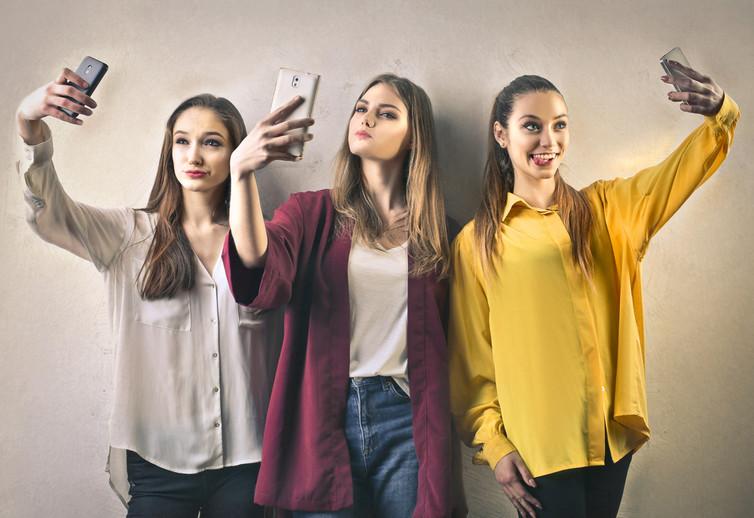Avocados aren’t the only thing millennials will be remembered for – we’re the generation finally bringing change to Hollywood and Westminster
Millennials know better. We understand that in order to reach true equality – whether that’s gender, sexuality, race, creed, class, or any other kind – we must begin by letting people’s voices be heard. And that starts with social media


Barely a day goes by that I don’t witness a Gen-Xer making sweeping statements about millennials. You’ve heard it over and over again: Millennials are lazy, entitled and flighty. They can’t hold down a job and have no concept of hard work. They’re politically naive, believing the impassioned rhetoric of Bernie Sanders and Jeremy Corbyn over the sleek, polished, handsome facades of Tony Blair or Bill Clinton. They’re surgically attached to those bloody phones, constantly chasing shallow validation in likes and follows.
But what these tedious indictments don’t acknowledge is that we’re also the first generation to truly question social structures and stand up for the democratisation of the media which has allowed us to give a voice to the people who were oppressed and silenced by every generation before us.
Commentators are falling over themselves to ponder “why now” when it comes to the seemingly endless stream of sexual abuse victims coming forward and identifying the – usually powerful white – men who exploited them. The reason is clear when you consider the treatment of women who came forward in the past. Think of the vilification of Anita Hill, Monica Lewinsky, the dozens of victims of Bill Cosby who were silenced over the years, or the women who were asked what they were wearing or how much they’d drunk.
But now we have the power of social media and blogs. People know they will be held accountable for blaming the victim or arguing it’s nothing serious. There are too many of us with a voice now.
It bears repeating that in the UK marital rape was still legal until 1991, that hate crime legislation only came into force in 1998, that we’ve only allowed same-sex couples to adopt since 2002, and that it wasn’t until 2004 that we gave transgender people the right to medical treatment to transition.
Millennials know better. We understand that in order to reach true equality – whether that’s gender, sexuality, race, creed, class, or any other kind – we must begin by letting people’s voices be heard, and we instinctively understand how technology allows us to do that. #MeToo showed the incredible power of social media, which proved the scale of a problem which had for so long been ignored. Women didn’t know they weren’t alone, and men didn’t think what they were doing was a problem – until the internet.
As a generation, millennials are more liberal and accepting than any before them. It’s young people in their 20s and early 30s who are having kids and letting them choose their own preferred pronouns, who presume a sliding scale of gender and sexuality without defaulting to the cisgendered heteronormative presumptions of our parents and grandparents. We march for the right of women to not be “grabbed by the pussy” and black men’s right to not be murdered by the police – just two of the myriad horrific issues endemic in our society which we’re just now beginning to address thanks to online petitions and digital information sharing.
But it’s reductive to boil a generation down to just its relationship to technology. Millennials lived through a huge economic crash caused unequivocally by the ruthlessly self-serving actions of the most powerful people in society. We came of age seeing our parents being made redundant from jobs they’d held their whole lives, lose houses they’d been paying off for decades. Suddenly, the social structure, which had seemed inevitable in the past, became exposed for what it really was: A scheme to make the rich richer and keep the rest of us silent.
It just so happens that the internet exploded, giving us blogging, social media and YouTube, allowing anyone to create content and put it out there for the world to find. The thirst for diverse voices eventually hit the mainstream, but it began online.
Millennials are changing the world in previously unimaginable ways. We’ve taken our new-found ability for democratised communication and questioned everything. Women don’t need to be the homemakers, men shouldn’t earn more money, families don’t need to be the same colour, couples don’t need to be heterosexual, women don’t have to have vaginas nor men penises, sex should be consensual and enjoyable for everyone involved, work doesn’t mean sitting in an office… You cannot deny the reality of the world we’re building just because you don’t understand Snapchat, emojis or chia seeds.
You call us snowflakes and you’re right: We do think that every individual has their own story borne of a unique experience, and we believe not only that everyone should be entitled to share it but also that the rest of us must at times shut up and listen, rather than reinforcing the endless cycle of white cis straight male narratives that already permeate so much of our culture. If millennials are remembered for something, it won’t be for their obsession with athleisurewear and avocados, it’ll be for the voices we gave the sections of society who had thus far been silent for too long.


Join our commenting forum
Join thought-provoking conversations, follow other Independent readers and see their replies